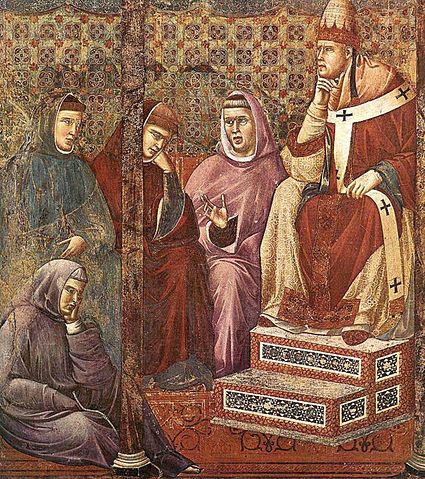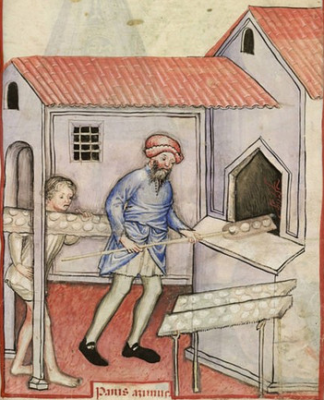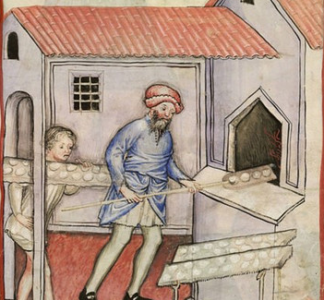We had an alum visit last week, Chris Schabel (University of Cyprus), though I’m only getting around to writing about it now because it’s the last (teaching) week of the semester and sleep is becoming a precious commodity!
Professor Schabel has spent the past several years working (and publishing extensively on) the history of medieval Cyprus and on interactions between the Latin West and the Greek. Not an area of medieval history I know a lot about, I must admit, but one I was eager to know more of!
His first talk was on “The Mendicants and the Quarrel Over Unleavened Bread in the Eucharist.” That there were theological conflicts between the eastern and western halves of Christendom during the Middle Ages (and of course later) is something that is well known to those who work on the history of Western Europe. Less known perhaps—at least, something which I was not aware of—was that this conflict was not confined just to the filioque dispute, or to the vexed question of the proper role of icons, but also extended to the issue of what kind of bread was appropriate to use when celebrating the Eucharist. The Catholic view was that either leavened or unleavened bread could be used, with a preference for unleavened bread; for the Orthodox, however, only leavened bread was suitable for consecration and the use of any other kind of bread branded one a heretic. Schabel traced the rhetoric about this “azymite” controversy through the writings of several theologians—the sometimes bemused incomprehension of the Latin writers contrasting sharply with the staunch refusal to compromise of the Eastern “fermentarians.”
No accommodation was ever forthcoming, and the ill feeling on the subject led to the martyrdom of 13 monks at Nicosia in 1231. The resentment lingered for a long time. John Jerome of Prague, writing in 1430, recorded that:
“I saw with my eyes in Nicosia and in Rhodes that when a Catholic priest was lifting up the host during Mass, the Greeks that were present turned their backs and the obscene part of their bodies against the Sacrament of the Altar.”
Not the most diplomatic response, perhaps.
 The other lecture of Prof. Schabel’s which I attended was on “Pope Honorius III (1216-1227) and the Greek East.” Honorius’ letters are one of the few sources which we have for Cypriot history during this period. Given the reasons which tended to prompt the composition of most papal letters, of course, they give us a perhaps rather one-dimensional view of the state of the island at this period, focusing as they do almost entirely on problems.
The other lecture of Prof. Schabel’s which I attended was on “Pope Honorius III (1216-1227) and the Greek East.” Honorius’ letters are one of the few sources which we have for Cypriot history during this period. Given the reasons which tended to prompt the composition of most papal letters, of course, they give us a perhaps rather one-dimensional view of the state of the island at this period, focusing as they do almost entirely on problems.
That said, what the letters do show us is fascinating: the tangled interconnections of cultures, faith and politics which occurred where West met East. There were all the machinations which went into the planning of the Fifth Crusade, the installation of Latin bishops in Greek areas, the faltering rule of the Latin emperors in Constantinople—no wonder that, as Prof. Schabel puts it, while memory of this period had faded in Western Europe, it’s still fresh enough in Cyprus to be referenced in the in-flight magazine of Cyprus Airways!
The most interesting part of Schabel’s talk, though, was the discussion of the career of Archbishop Antelm of Patras (1205-ca. 1241), a thoroughly nasty piece of work. The charges levelled against him in 1224 are more than a page long in translation, and include striking a priest during Mass, performing “the vice of infamous incontinence”, gouging out the eyes of numerous people, and tying a cleric backwards onto a donkey. All of this earned Antelm a grand total of one year’s suspension because Honorius couldn’t quite manouevre without him—probably one of the best examples I can think of of how principles could be subjugated to politics in the medieval period.
And speaking of ruthless necessity, it’s time for the final grading portion of the semester to begin!

